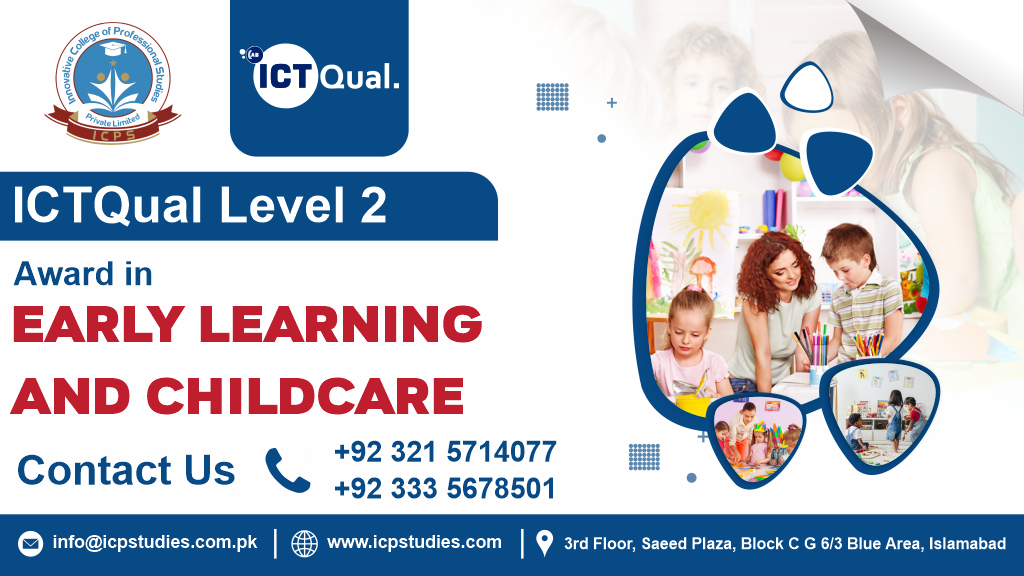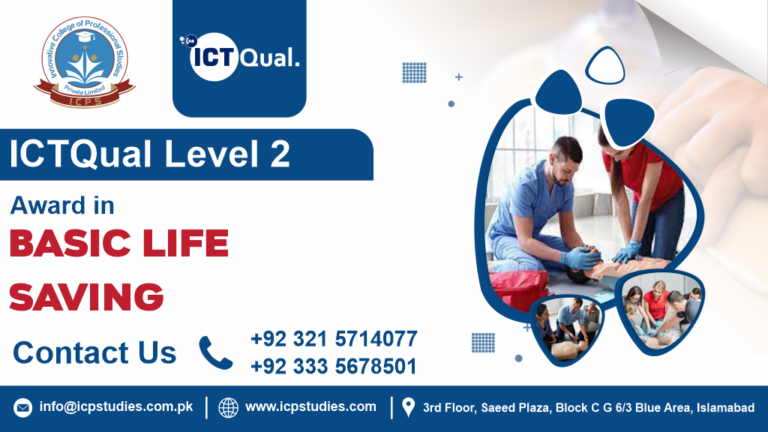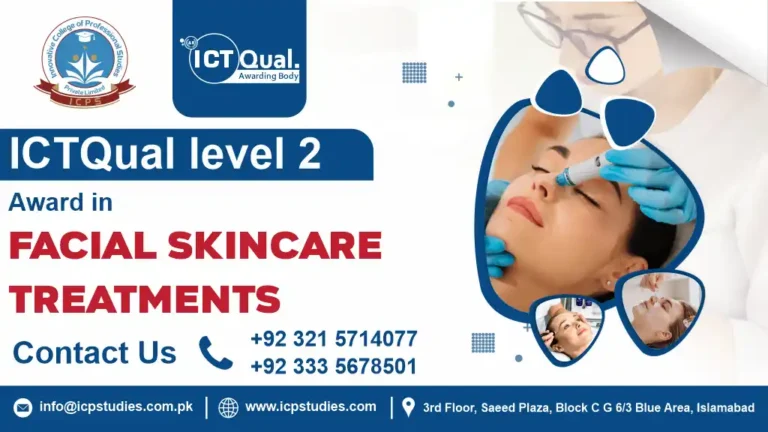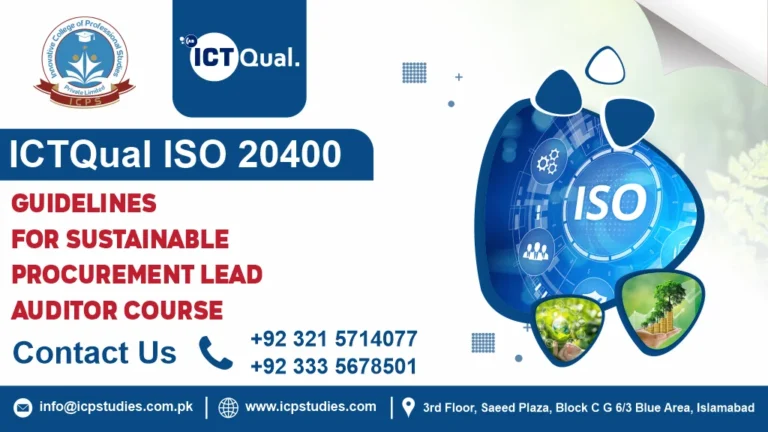If you’re passionate about working with young children and looking to deepen your understanding of early years education, the Level 2 Award in Early Learning and Childcare is an excellent next step. This qualification is designed to build on foundational knowledge and equip learners with practical skills and insights essential for a successful career in early childhood education.
The Level 2 Award in Early Learning and Childcare is a nationally recognized qualification that provides a more in-depth understanding of early years education compared to entry-level courses. It focuses on practical skills and theoretical knowledge required to support children’s development and well-being effectively. This award is ideal for those who have completed a Level 1 qualification or have some experience in childcare and wish to advance their career.
The Level 2 Award in Early Learning and Childcare is a valuable qualification for those looking to advance their career in early childhood education. It offers a deeper understanding of child development, practical skills for managing early years settings, and a foundation for further study. Whether you’re aiming to enhance your career prospects or gain specialized knowledge in early years education, this award provides the tools and insights needed to succeed in a rewarding and impactful field.
All About ICTQual Level 2 Award in Early Learning and Childcare
Course Overview
The Level 2 Award in Early Learning and Childcare is a professional qualification designed to provide a comprehensive foundation for individuals pursuing a career in early childhood education. This award builds on basic knowledge from entry-level qualifications and focuses on equipping learners with practical skills and deeper insights essential for working effectively with young children.
The Level 2 Award in Early Learning and Childcare is a vital qualification for those seeking to deepen their expertise and advance their careers in early childhood education. It provides a thorough understanding of essential concepts and practical skills needed to work effectively with young children, making it an excellent choice for both newcomers and those with some experience in the field. Whether you aim to enhance your current role or prepare for further studies, this award offers a solid foundation for a successful career in early years education.
Study Units
- Child Development and Well-being
- Supporting Early Learning and Play
- Promoting Positive Behavior
- Observation, Assessment, and Planning
- Safeguarding and Child Protection
- Special Educational Needs and Disabilities
- Outdoor Learning and Nature Play
To enroll in the ICTQual Level 2 Award in Early Learning and Childcare, participants typically need to meet the following requirements:
- Age Requirement: Participants should be at least 16 years old.
- Basic Literacy and Numeracy: A good understanding of English, along with basic literacy and numeracy skills, is essential for completing the course.
- Relevant Experience: While prior experience in childcare or early learning settings is beneficial, it is not always mandatory.
- Course Registration: Participants must register for the course through an accredited training provider.
- Payment: Course fees must be paid as required by the training provider.
- Commitment to Attend: Participants should be prepared to attend the full duration of the course and complete any required assessments to receive certification.
he ICTQual Level 2 Award in Early Learning and Childcare is designed for:
- Aspiring Childcare Workers: Individuals looking to start a career in early years education and childcare.
- Entry-Level Childcare Practitioners: Those seeking foundational knowledge and skills for working with children in early learning settings.
- Support Staff: Individuals already working in nurseries, preschools, or childcare centers who want to formalize their knowledge.
- Parents and Guardians: Those interested in understanding early childhood development and care practices to support their own children.
- Students Pursuing Further Education: Individuals looking to build a foundation for further studies in childcare or education.
This course provides participants with essential knowledge and skills related to child development, care practices, and the role of early learning in a child’s life, preparing them for various roles in the childcare sector.
Learning Outcome
1. Child Development and Well-being
Learning Outcomes:
- Understand Developmental Milestones: Identify and describe key stages of child development, including physical, emotional, social, and cognitive milestones from birth to age 5.
- Support Holistic Development: Apply knowledge of developmental theories to support the overall well-being and development of children, ensuring their needs are met in a balanced manner.
- Promote Emotional and Physical Well-being: Implement strategies to support children’s emotional resilience and physical health, including effective communication and promoting healthy lifestyles.
2. Supporting Early Learning and Play
Learning Outcomes:
- Facilitate Learning Through Play: Design and implement engaging play activities that support various aspects of children’s learning and development, including language, social skills, and problem-solving.
- Apply Play-based Approaches: Use different types of play (e.g., structured, free play) to enhance children’s learning experiences and cater to diverse developmental needs.
- Evaluate Learning Outcomes: Assess the effectiveness of play-based activities in achieving learning objectives and adapt strategies to meet individual children’s needs.
3. Promoting Positive Behavior
Learning Outcomes:
- Implement Behavior Management Techniques: Use positive behavior management strategies to encourage desirable behavior and address challenging behaviors effectively.
- Support Social and Emotional Development: Promote social skills and emotional intelligence through structured activities and positive reinforcement techniques.
- Create a Positive Environment: Develop and maintain an environment that fosters respect, inclusion, and positive interactions among children.
4. Observation, Assessment, and Planning
Learning Outcomes:
- Conduct Effective Observations: Use various observational techniques to monitor and document children’s behavior, development, and progress.
- Analyze and Interpret Data: Analyze observational data to assess children’s needs, strengths, and areas for development.
- Plan Targeted Activities: Develop and implement activity plans based on assessment findings to support children’s individual learning and developmental goals.
5. Safeguarding and Child Protection
Learning Outcomes:
- Understand Safeguarding Principles: Explain the key principles of safeguarding and child protection, including recognizing signs of abuse and neglect.
- Implement Safeguarding Procedures: Apply safeguarding procedures and policies to ensure a safe and protective environment for children.
- Respond to Concerns Appropriately: Follow appropriate protocols for reporting and addressing safeguarding concerns and working with other professionals to protect children.
6. Special Educational Needs and Disabilities (SEND)
Learning Outcomes:
- Identify SEND: Recognize different types of special educational needs and disabilities and understand their impact on children’s learning and development.
- Support Inclusion: Implement strategies to support children with SEND, ensuring they have access to the same learning opportunities as their peers.
- Work with Families and Professionals: Collaborate with families and other professionals to develop and review individualized support plans for children with SEND.
7. Outdoor Learning and Nature Play
Learning Outcomes:
- Utilize Outdoor Environments: Plan and facilitate outdoor learning activities that utilize natural environments to enhance children’s learning and development.
- Promote Nature Play: Incorporate nature play into the curriculum to support physical activity, creativity, and environmental awareness.
- Ensure Safety in Outdoor Settings: Implement safety measures and risk assessments to ensure a safe and enriching outdoor learning experience for children.
FAQs about ICTQual Level 2 Award in Early Learning and Childcare







